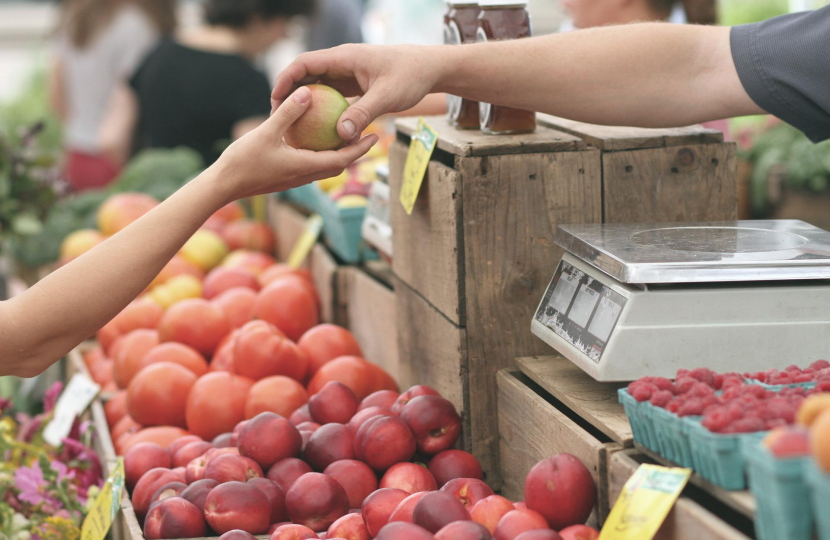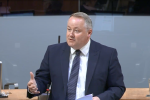
According to the United Nations' Committee on World Food Security, food security is defined as meaning that all people, at all times, have physical, social, and economic access to sufficient, safe, and nutritious food that meets their food preferences and dietary needs for an active and healthy life.
Wales and the rest of the UK has suffered in recent decades with diminishing levels of food security. In the late 1980s and early 1990s, the United Kingdom was 75 per cent self-sufficient, but worryingly this figure now stands at just under 60 per cent.
Last year a report published by Public Health Wales warned of the potential impact Brexit, the Coronavirus pandemic and climate change could have on food security in Wales, and of course there is now the additional impact of the Russian invasion on Ukraine.
As Liz Green, Consultant in Public Health, Policy and International Health at Public Health Wales, and one of the report’s authors said: “The whole population is affected by food security to some degree, but vulnerable population groups will be particularly impacted negatively including those on low incomes, women, families with children, farmers, fishers and those who live in areas of deprivation.”
Over the summer I have met with local farmers (most recently at last Thursday’s Denbigh and Flint County Show) to discuss the huge uncertainty they are feeling due to rocketing input prices. To give you an example of what they are experiencing, fertiliser costs have more than doubled in the past 12 months and feed costs have increased by around 80%.
Meanwhile, last year, average energy costs for farmers were £7,500 per quarter. This year, they're sitting at around £10,000 per quarter and expected to rise further. On top of this a delivery of red diesel, which is used by farmers to fuel farm machinery, used to cost £1,600. These days, it's closer to £3,000.
Our farmers need help, and it is therefore essential that food security becomes a key focus of future agricultural policy.
The panic buying we witnessed during the early months of the pandemic gave us all a taste of what food shortages really look like and none of us want to go back to struggling to get the food we need to feed our families or run our businesses.
I was therefore delighted that Welsh Conservative MS Peter Fox’s proposed Food (Wales) Bill won Senedd support last November.
The purpose of the Bill is to establish a more sustainable food system in Wales to strengthen food security, improve Wales’ socioeconomic well-being, and enhance consumer choice.
It requires the Welsh Government to publish a National Food Strategy for Wales on a regular basis, to tackle food poverty and malnutrition, to ensure the sustainable growth of the food sector to create jobs and attract investment, and to ensure that sustainable local food producers have access to adequate support and incentives. It also requires public bodies to establish Local Food Plans to strengthen public procurement and create better infrastructure to link food producers and consumers.
Further, the Bill aims to boost the food and drink sector in Wales by strengthening local supply chains, creating new economic opportunities within our communities, and improve the environment.
As Wales tries to bounce back from the pandemic, such changes would enhance livelihoods, cut waste, strengthen supply chains, and make sure no one goes hungry in Wales.
